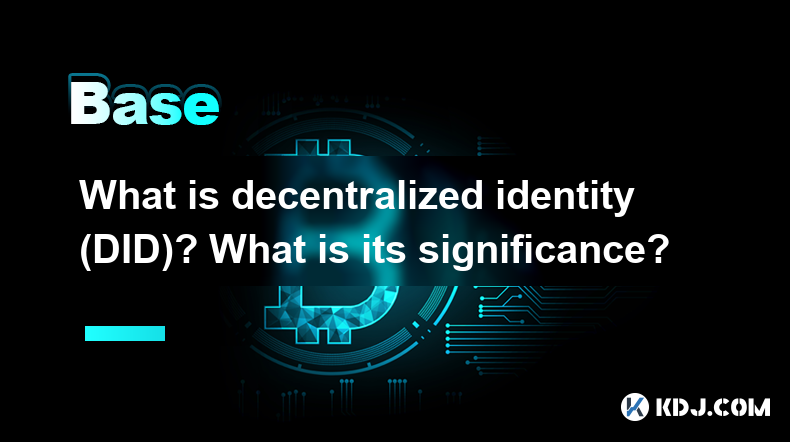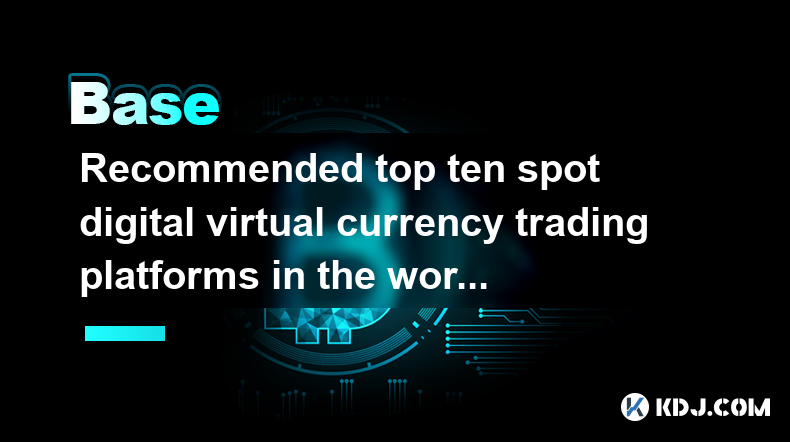-
 Bitcoin
Bitcoin $87,160.3686
2.59% -
 Ethereum
Ethereum $1,577.5291
-0.58% -
 Tether USDt
Tether USDt $1.0000
0.00% -
 XRP
XRP $2.0804
0.22% -
 BNB
BNB $596.3334
0.99% -
 Solana
Solana $136.5658
-0.15% -
 USDC
USDC $1.0000
0.00% -
 Dogecoin
Dogecoin $0.1584
1.77% -
 TRON
TRON $0.2458
-0.32% -
 Cardano
Cardano $0.6208
0.05% -
 Chainlink
Chainlink $13.1006
-1.96% -
 UNUS SED LEO
UNUS SED LEO $9.1412
-1.97% -
 Avalanche
Avalanche $19.9880
2.50% -
 Stellar
Stellar $0.2528
3.56% -
 Shiba Inu
Shiba Inu $0.0...01238
-0.19% -
 Toncoin
Toncoin $2.8930
-3.79% -
 Sui
Sui $2.2031
4.44% -
 Hedera
Hedera $0.1692
1.25% -
 Bitcoin Cash
Bitcoin Cash $343.2002
2.28% -
 Polkadot
Polkadot $3.8296
-1.99% -
 Hyperliquid
Hyperliquid $17.9378
1.39% -
 Litecoin
Litecoin $78.0777
0.75% -
 Dai
Dai $0.9999
0.00% -
 Bitget Token
Bitget Token $4.4322
0.90% -
 Ethena USDe
Ethena USDe $0.9993
0.00% -
 Pi
Pi $0.6347
-0.88% -
 Monero
Monero $214.7110
-0.08% -
 Uniswap
Uniswap $5.2643
-0.22% -
 Pepe
Pepe $0.0...07787
2.99% -
 Aptos
Aptos $4.9970
-0.84%
What is decentralized identity (DID)? What is its significance?
Decentralized Identity (DID) uses blockchain and cryptography to give individuals control over their digital identities, enhancing privacy and security by eliminating reliance on central authorities, though scalability and user experience remain challenges.
Mar 24, 2025 at 05:14 am

Key Points:
- Decentralized Identity (DID) offers an alternative to centralized identity management systems, placing control of personal data back in the hands of individuals.
- DID leverages blockchain technology and cryptographic techniques to ensure security, privacy, and portability of digital identities.
- The significance of DID lies in its potential to revolutionize online interactions, improve data security, and foster greater user autonomy.
- Several challenges remain in the widespread adoption of DID, including scalability, interoperability, and user experience.
What is Decentralized Identity (DID)?
Decentralized Identity (DID) represents a paradigm shift in how we manage digital identities. Unlike traditional systems where a central authority (like a government or social media platform) controls and verifies identities, DID empowers individuals to own and control their digital identities. This is achieved through cryptographic techniques and distributed ledger technologies, primarily blockchain. A DID is a verifiable, self-asserted identifier that is independent of any central authority. Instead of relying on a single entity for identity verification, DID allows individuals to present verifiable credentials to different services, selectively sharing only the necessary information.
How does DID work?
DID utilizes cryptographic keys to control and manage identity. Each individual possesses a unique cryptographic key pair: a private key (kept secret) and a public key (shared). The public key acts as the DID, while the private key is used to sign and verify transactions related to the identity. This ensures the authenticity and integrity of the identity. Verifiable credentials, digital documents proving specific attributes (e.g., age, driver's license), are cryptographically linked to the DID. These credentials can be selectively revealed to different services, without revealing the entire identity.
What are the benefits of using DID?
- Enhanced Privacy: Users retain control over their data, choosing what information to share and with whom. This significantly reduces the risk of data breaches and unauthorized access.
- Improved Security: Cryptographic techniques ensure the integrity and authenticity of the DID and associated credentials. The decentralized nature mitigates the single point of failure inherent in centralized systems.
- Greater User Autonomy: Individuals are no longer dependent on centralized authorities for managing their digital identities. This empowers users and fosters greater self-sovereignty.
- Increased Interoperability: Ideally, DIDs can be used across different platforms and services, eliminating the need to create multiple accounts and profiles. This simplifies online interactions.
What are the challenges in implementing DID?
- Scalability: Handling a large number of DIDs and transactions efficiently is a significant technical challenge. Blockchain scalability remains an ongoing area of development.
- Interoperability: Ensuring seamless communication and data exchange between different DID systems is crucial for widespread adoption. Standardization efforts are essential to achieve this.
- User Experience: Making DID technology user-friendly is crucial for mass adoption. Complex cryptographic concepts need to be simplified for average users.
- Regulatory Uncertainty: The legal and regulatory landscape surrounding DID is still evolving. Clear guidelines and regulations are necessary to foster trust and adoption.
What is the significance of DID in the cryptocurrency space?
Within the cryptocurrency ecosystem, DID holds immense potential. It can be used to create secure and private digital wallets, enabling users to control their cryptocurrency assets without relying on centralized exchanges or custodians. DID can also facilitate secure and transparent transactions, reducing the risk of fraud and identity theft. Furthermore, it can power decentralized autonomous organizations (DAOs) by providing a secure and verifiable way to manage membership and governance.
How does DID differ from traditional identity systems?
Traditional identity systems rely on centralized authorities to issue, manage, and verify identities. This creates vulnerabilities to data breaches and single points of failure. In contrast, DID decentralizes control, putting the individual in charge of their identity data. This enhanced privacy and security is a major difference. Traditional systems often require users to share vast amounts of personal data, while DID allows for selective disclosure of information.
What technologies underpin DID?
Several technologies are essential for DID. Blockchain provides a secure and transparent ledger for recording and managing identity data. Cryptography secures the DID and associated credentials, ensuring authenticity and integrity. Decentralized storage solutions, like IPFS, can store the verifiable credentials associated with a DID. These technologies work together to create a robust and secure decentralized identity system.
What are some examples of DID implementations?
Several projects are exploring DID implementation. Some focus on specific use cases, such as digital identity for supply chain management or secure access to online services. Others are developing more general-purpose DID solutions. Many of these projects are actively working on interoperability and standardization to create a more cohesive ecosystem. The development of standards is crucial for broader adoption.
What are the future implications of DID?
The widespread adoption of DID could revolutionize online interactions, fostering greater trust, privacy, and security. It could simplify access to services, reduce fraud, and empower individuals. However, overcoming the challenges related to scalability, interoperability, and user experience is crucial for realizing the full potential of DID.
Frequently Asked Questions:
Q: Is DID secure?
A: DID leverages cryptographic techniques to ensure the security and integrity of the identity and associated credentials. The decentralized nature also mitigates risks associated with single points of failure present in centralized systems. However, the security of a DID is dependent on the security of the user's private key.
Q: How can I get a DID?
A: Several platforms and services are emerging that offer DID creation and management. The process generally involves generating a key pair and registering the public key as your DID on a blockchain or distributed ledger. Specific steps vary depending on the chosen platform.
Q: Is DID anonymous?
A: DID is not inherently anonymous. While it provides control over what data is shared, the DID itself is a public identifier. However, users can employ privacy-enhancing techniques, such as zero-knowledge proofs, to selectively reveal attributes without disclosing their entire identity.
Q: What is the difference between DID and self-sovereign identity (SSI)?
A: DID is a technical specification defining how decentralized identities are represented and managed. SSI is a broader concept encompassing the philosophy and principles behind empowering individuals to own and control their digital identities. DID is a key technology enabling SSI.
Q: What role does blockchain play in DID?
A: Blockchain provides a secure, immutable, and transparent ledger for recording and managing DID and associated credentials. This ensures the integrity and provenance of identity data. While not strictly required for all DID implementations, blockchain significantly enhances security and trust.
Disclaimer:info@kdj.com
The information provided is not trading advice. kdj.com does not assume any responsibility for any investments made based on the information provided in this article. Cryptocurrencies are highly volatile and it is highly recommended that you invest with caution after thorough research!
If you believe that the content used on this website infringes your copyright, please contact us immediately (info@kdj.com) and we will delete it promptly.
- Lightchain AI: The Future of Cryptocurrency
- 2025-04-22 05:30:13
- Coinbase Expands XRP Futures Contracts Trading
- 2025-04-22 05:30:13
- Difficulty Spike and Hashrate Drop Lengthen Block Times
- 2025-04-22 05:25:13
- Despite the Harshest Profit Squeeze in Half a Decade, Bitcoin Mining on U.S. Soil is Consolidating and Gathering Momentum
- 2025-04-22 05:25:13
- Bitcoin (BTC) markets ticked higher
- 2025-04-22 05:20:13
- Shiba Inu (SHIB) and Lightchain AI (LCAI) Are Rapidly Gaining Ground, Positioning Themselves as Serious Competitors to Dogecoin.
- 2025-04-22 05:20:13
Related knowledge

What are the formal digital currency trading apps? What are the BTC exchange apps?
Apr 22,2025 at 03:28am
Regular BTC trading app 1. Binance Binance is a world-renowned digital currency trading platform, providing powerful APPs and excellent user experience. Its main features include: Rich trading pairs : Binance supports over 500 cryptocurrencies and thousands of trading pairs, and users can easily find the currency they want to trade. High security : Bina...

Recommended top ten spot digital virtual currency trading platforms in the world in 2025
Apr 21,2025 at 05:15pm
Recommended top ten spot digital virtual currency trading platforms in the world in 2025 1. Binance As the world's premier cryptocurrency trading platform, Binance is known for its extensive trading pairs and efficient trading services. Its features include: High Liquidity : Binance has huge trading volumes, ensuring users can trade at the best pric...

Ranking of top ten virtual currency trading apps in the currency circle (the latest authoritative list in 2025)
Apr 21,2025 at 10:28pm
The top ten virtual currency trading apps in the 2025 cryptocurrency circle are listed as follows: 1. Binance Binance is one of the world's leading cryptocurrency trading platforms, known for its efficient trading system and extensive currency support. Binance's user interface is designed with simplicity and is suitable for beginners and profess...

Introduction to the top ten digital currency trading app platforms in 2025
Apr 22,2025 at 03:49am
Introduction to the top ten digital currency trading app platforms in 2025 1. Binance Binance is one of the world's leading digital currency trading platforms, ranking first with its huge trading volume and extensive user base. Binance provides trading pairs of more than 500 cryptocurrencies, supporting a variety of trading methods such as spot trad...

The latest ranking of the top ten digital virtual currency trading platforms in 2025
Apr 22,2025 at 02:14am
The latest ranking of the top ten digital virtual currency trading platforms in 2025 1. Binance As the world's largest cryptocurrency trading platform, Binance has always maintained its leading position. The platform offers trading pairs in over 500 cryptocurrencies and supports multiple languages and payment methods. Its user-friendly interface i...

Which virtual currency app is better? Top ten cryptocurrency app trading platforms
Apr 22,2025 at 02:35am
Top 10 cryptocurrency trading application platforms recommended 1. Binance Binance is one of the world's leading cryptocurrency trading platforms, and is popular for its extensive currency support and efficient trading systems. Binance provides services including spot trading, futures trading, leveraged trading, etc., which meet the needs of differe...

What are the formal digital currency trading apps? What are the BTC exchange apps?
Apr 22,2025 at 03:28am
Regular BTC trading app 1. Binance Binance is a world-renowned digital currency trading platform, providing powerful APPs and excellent user experience. Its main features include: Rich trading pairs : Binance supports over 500 cryptocurrencies and thousands of trading pairs, and users can easily find the currency they want to trade. High security : Bina...

Recommended top ten spot digital virtual currency trading platforms in the world in 2025
Apr 21,2025 at 05:15pm
Recommended top ten spot digital virtual currency trading platforms in the world in 2025 1. Binance As the world's premier cryptocurrency trading platform, Binance is known for its extensive trading pairs and efficient trading services. Its features include: High Liquidity : Binance has huge trading volumes, ensuring users can trade at the best pric...

Ranking of top ten virtual currency trading apps in the currency circle (the latest authoritative list in 2025)
Apr 21,2025 at 10:28pm
The top ten virtual currency trading apps in the 2025 cryptocurrency circle are listed as follows: 1. Binance Binance is one of the world's leading cryptocurrency trading platforms, known for its efficient trading system and extensive currency support. Binance's user interface is designed with simplicity and is suitable for beginners and profess...

Introduction to the top ten digital currency trading app platforms in 2025
Apr 22,2025 at 03:49am
Introduction to the top ten digital currency trading app platforms in 2025 1. Binance Binance is one of the world's leading digital currency trading platforms, ranking first with its huge trading volume and extensive user base. Binance provides trading pairs of more than 500 cryptocurrencies, supporting a variety of trading methods such as spot trad...

The latest ranking of the top ten digital virtual currency trading platforms in 2025
Apr 22,2025 at 02:14am
The latest ranking of the top ten digital virtual currency trading platforms in 2025 1. Binance As the world's largest cryptocurrency trading platform, Binance has always maintained its leading position. The platform offers trading pairs in over 500 cryptocurrencies and supports multiple languages and payment methods. Its user-friendly interface i...

Which virtual currency app is better? Top ten cryptocurrency app trading platforms
Apr 22,2025 at 02:35am
Top 10 cryptocurrency trading application platforms recommended 1. Binance Binance is one of the world's leading cryptocurrency trading platforms, and is popular for its extensive currency support and efficient trading systems. Binance provides services including spot trading, futures trading, leveraged trading, etc., which meet the needs of differe...
See all articles






















































































